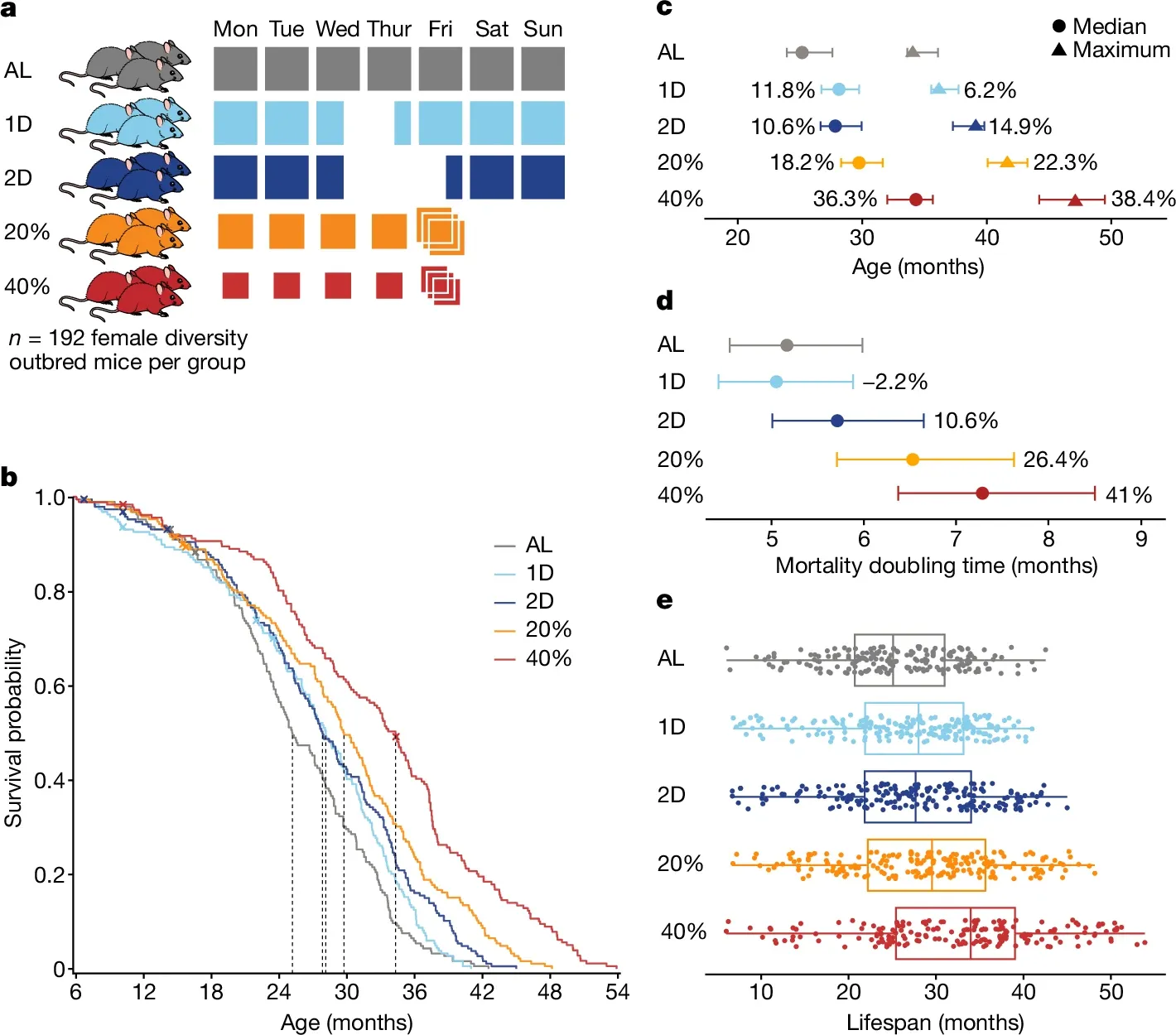Cutting calories extends life, but not for the reasons you might think
Would you cut 40% of your caloric intake if it meant you'd live 40% longer?

Well, if your answer to that question is yes, there's good news...
If you're a mouse, that is!
For the rest of us, there's still a bit of work to do.
With respect to people living in the United States, the average lifespan for males is 75 years and for females it's approximately 80 years.
Prior to 1800 and the introduction of modern medicine, human life expectancy was about half that.
By historical standards, we're doing pretty well!
But, humans have been trying to figure out ways to live even longer be it through leading healthier lifestyles or 'hacking' their own biology.
A lot of contemporary advice is centered on improving personal habits around diet and exercise.
So it's encouraging that recent studies in animals have shown that calorie restriction appears to increase lifespan.
The assumption here has always been that calorie restricted diets result in weight loss that promotes healthier metabolic function thus leading to longer lives.
At least that's what conventional wisdom has hypothesized.
But now new research in over 1,000 female mice has shown that this simplistic assumption is probably far more complex than we had initially thought!
In the figure above you can see a) mice were split into 5 groups: AL - Ad libitum (could eat as much as they wanted), 1D - fasted 1 day a week, 2D - fasted 2 days a week, 20% - were given 20% less food, 40% - were given 40% less food b) Kaplan-Meier curves of survival by diet, dashed lines are median survival c) The median and maximum life expectancy of all groups undergoing dietary restrictions was increased d) Mortality doubling time increases (longer doubling times are better when it comes to death) for all diet restricted groups except for the 1 day fasters and e) Box plots showing the lifespans of all of the mice in each group
Ok, so case closed, calorie restriction can increase lifespan 30-40% (in mice)!
But these researchers weren't just interested in replicating the results of previous research by doing a bigger study, they were also interested in understanding WHY this happened.
Surprisingly, what they found was that metabolic traits were very poor predictors of lifespan and that mice who stayed chonkier while on the calorie restricted diets appeared to fare the best.
They also found that immune and haematologic (blood) traits were far better predictors of whether a mouse would live longer on a calorie restricted diet and that a mouse's genetic background accounted for a greater proportion of the variance in lifespan than the diet that they were placed on!
So, what does this all mean?
Calorie restriction in mice can generally make them live longer, but for mice looking to go the distance, it's all in their genes!
And, what does this mean for you and me?
It's probably the same, and with the holidays just around the corner, maybe now is a good time to think about cutting back (and taking stock of the age of your eldest relatives!)
